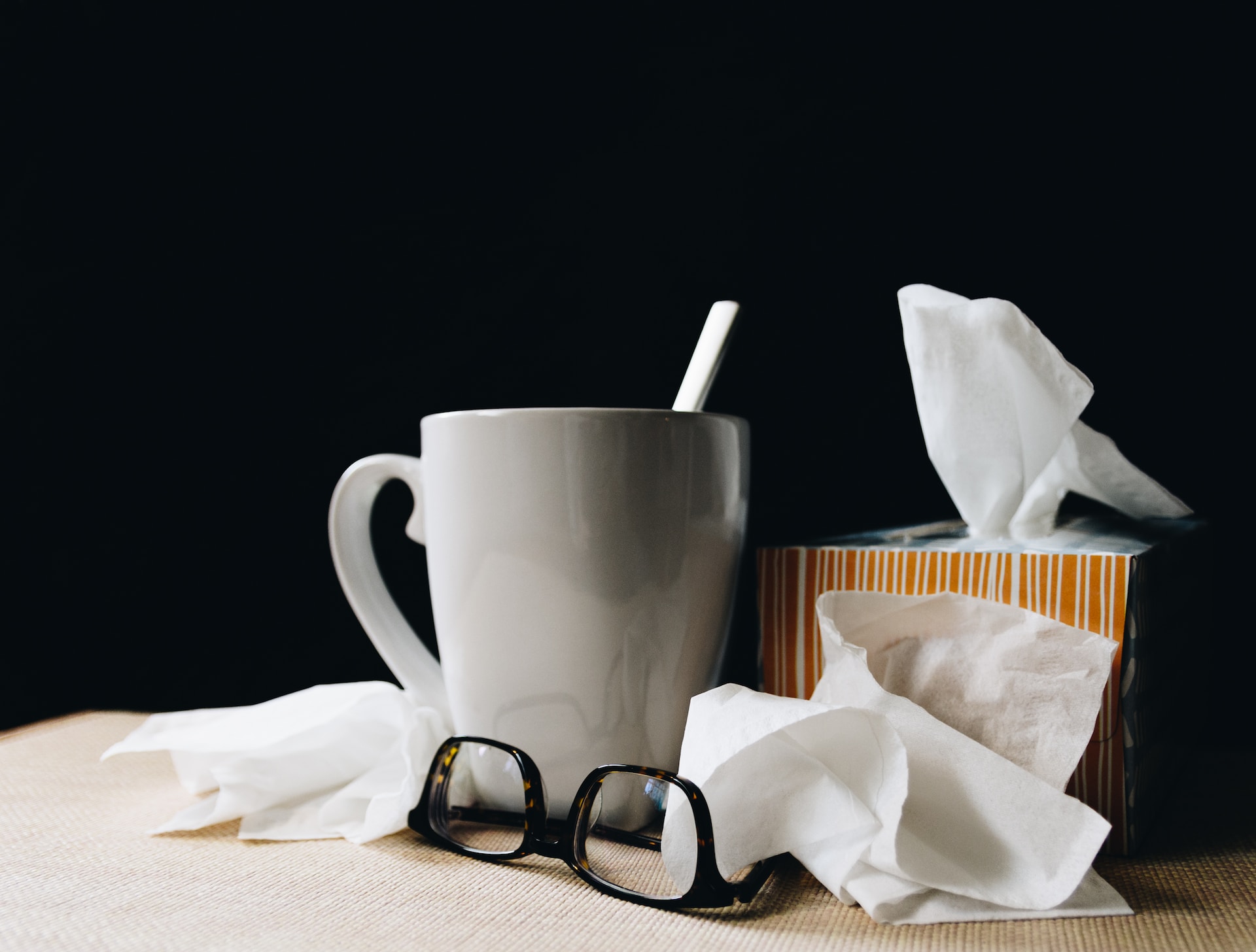
Body + Mind is reader-supported. We may earn an affiliate commission when you buy through some of the links on our site.
Getting sick is never fun. You don’t feel like yourself and life has to pause until you recover. The good news is that you don’t have to wait around until the flu runs its course. Use this guide to learn how to recover from the flu and enjoy longer periods of robust health between fevers and stuffy noses.
The flu — also known as influenza — has some typical symptoms but may not always exhibit the same signs when someone gets sick. Everyone must learn how the flu presents, which includes the following symptoms that last seven to 10 days:
People can easily manage these symptoms at home by waiting seven to 10 days until they resolve themselves. Those at higher risk due to age or preexisting conditions could experience complications if the virus overwhelms their immune systems.
If you exhibit these symptoms and struggle to breathe or experience a fever over 103 degrees Fahrenheit, contact your doctor or go to the emergency room. You may have other more complicated illnesses with flu-like symptoms that require medical attention.

Regain control over your health using these tips to recover faster from the flu. You’ll give your body what it needs to fight the virus and heal itself in record time.
You might have heard a loved one recommend that you get some sleep when you’re sick. The kind advice has scientific backing. When you’re napping or sleeping through the night, your body uses your restored energy to repair and regulate inflammatory signaling, making your immune system more effective.
It’s crucial to sleep as much as possible when you have the flu. Try taking an over-the-counter fever or congestion medication if your symptoms make you uncomfortable. If sleep is elusive even when you’re not sick, journal about your anxiety to release it from your mind. You might fall asleep more easily when your body is less stressed.
Enjoy a mug of tea or flavored water with extra electrolytes when you have the flu. Staying hydrated gives your body enough water to regulate your temperature, which could shorten the length of your fever. The average adult drinks 44 ounces of water daily, but you could increase your intake to aid your immune system in its fight against your fever.
Although there isn’t a singular vitamin or mineral that eradicates the flu virus, you can eat a healthier diet to fortify your immune system when you’re sick. Research shows that vitamin D aids macrophages and T-cells people use to overcome viruses. Zinc can also limit a virus’s replication abilities when consumed after you get sick.
Ask a loved one to help you find healthier foods if you’re already sick and can’t devote your typical time or energy to your research. You can always make a list to know what to eat the next time you catch the flu. Foods like carrots, broccoli and nuts are great places to start. Depending on your health history, you could also talk with your doctor about taking specific vitamin supplements.
Wear a sweatshirt in bed and layer your jackets if you need to go outside while battling the flu. If you stay warm, you’ll improve your immune response by giving your body the heat it needs to maintain its energy. If you’re cold, it prioritizes warming your internal organs rather than maintaining your immune system. You could also increase your thermostat by one or two degrees if it wouldn’t affect your electricity bill very much.
Imagine stepping into a warm, dry room. You inhale a big breath and the thin air rakes up your nasal passages. Your imagination isn’t causing the sensation. Dry air irritates the nose by stealing its moisture and causing microscopic cracks. Your body responds by producing mucus to protect your airways.
This might be helpful if you’re taking a winter stroll while you’re healthy, but it’s a challenge for anyone who’s already congested with influenza. If you can’t breathe through your nose, try hanging out or sleeping by a humidifier. It could make your congestion less intense if your home has dry air.

You won’t need to worry about getting sick if you use these tips to protect your health. See how you could integrate them with your daily routine to fortify your health in seemingly effortless ways.
You’re already washing your hands before making a meal and after using the restroom. How much effort do you put into scrubbing and what’s the temperature of the water? Follow expert-approved handwashing steps to wash bacteria and viruses away, like counting for 20 seconds or using high-quality soap. You’ll be less likely to get sick by touching your mouth or eyes afterward.
Washing your hands is great, but it’s not super effective if you’re breathing the same air as someone with the airborne versions of influenza. Check your state health department’s website to watch their seasonal flu tracker. If the reports of flu cases increase where you live, you can always wear a mask in public until the numbers start decreasing again.
The flu vaccine is available for people older than six months of age. Research shows it reduces the odds of getting influenza between 40–60% and reduces symptom severity if you get the virus after your vaccination. Check with your doctor to get caught up on your vaccination history and get further protected with the annual flu shot.

Battling the flu is a shared experience. You’ll get it occasionally throughout your life, but it doesn’t have to be severe or scary. Use these tips to recover from the flu and stay healthy more easily. Preventative measures and science-baked recovery strategies will make you feel your best and quickly bounce back from illnesses.
Your email address will only be used to send you our newsletter, and at any time you may unsubscribe. For more information, see our Privacy Policy.